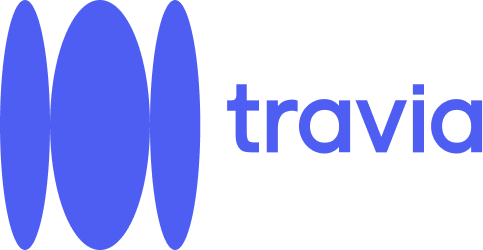Our Travel Blog
Read about traveling and
experiences around it & let yourself
be inspired by success stories.


How to Streamline Your Travel Agency Business for Success in 2025
The travel industry in 2025 is more competitive and digitally driven than ever. To run a successful travel agency business, agencies must go beyond simply selling destinations. Clients expect efficient service, real-time updates, and personalized experiences. The key to staying ahead lies in streamlining operations, embracing automation, and building strategic hotel partnerships. In this article, we explore how travel agencies can use modern tools and insights to improve performance, boost client satisfaction, and secure long-term growth.
Automate Repetitive Tasks Using Travel Booking Software
One of the fastest ways to increase efficiency is to automate everyday tasks that consume time and resources. From processing bookings and managing payments to sending client follow-ups and updating itineraries, manual tasks can slow down operations and create room for error.
Adopting travel booking software allows agencies to streamline these repetitive tasks. There are platforms that offer real-time inventory management, dynamic pricing, automated payment systems, and instant confirmations. These functions reduce manual workload and ensure that clients receive quick, reliable service. Teams that rely on automation can shift their focus from logistics to relationship-building and business development, which are essential components of a thriving travel agency business.

Strengthen Your Hotel Partnerships
Strong hotel relationships are a crucial role in helping travel agency businesses offer better service and increase profit margins. When you partner with trusted hotels, you gain access to more competitive rates, exclusive offers, and enhanced availability, all of which contribute to higher client satisfaction.
To make the most of these partnerships, agencies should adopt a dual strategy that combines the efficiency of B2B hotel booking platforms with the personalized value of direct relationships. B2B platforms provide real-time access to a wide range of accommodations, allowing agents to quickly secure rooms at better rates and manage bookings with ease. This streamlined process reduces the time spent on back-and-forth communication and ensures fast, reliable service for clients.
At the same time, cultivating direct relationships with select hotel providers can unlock unique benefits such as tailored packages, better pricing, and priority availability. These direct booking strategies help agencies differentiate their offerings and deliver more personalized travel experiences.
By balancing the convenience of B2B systems with the depth of direct hotel partnerships, a travel agency business can offer flexible, competitive, and memorable experiences that drive client loyalty and business growth.
Evaluate and Improve Operational Workflows
Regular evaluation of your internal processes is necessary to maintain a streamlined operation. Many agencies continue using outdated methods without realizing the impact on productivity and customer service. By assessing key performance indicators like booking conversion rates, revenue trends, and client feedback, you can identify inefficiencies and implement meaningful improvements.
This kind of ongoing analysis allows you to refine your workflows, enhance your team’s productivity, and ensure consistent service quality. It also helps in making informed decisions about where to invest time and resources, from staff training to upgrading software solutions.
Use Real-Time Data Analytics for Strategic Growth
Data is one of the most valuable resources available to your travel agency business. Using real-time data analytics, agencies can monitor trends, understand traveler preferences, and respond quickly to market changes. Access to current data enables you to make informed decisions about marketing strategies, pricing models, and customer service enhancements.
For example, analyzing booking patterns can help you tailor promotions to specific traveler segments or predict peak travel periods. Understanding customer behavior allows you to personalize services, improve engagement, and increase repeat bookings. Data-driven decision-making strengthens your agency’s ability to compete in a fast-moving industry.
Final Thoughts
Success in the travel agency business today is measured by more than just the number of trips sold. Agencies must deliver exceptional experiences, operate efficiently, and adapt quickly to change. Automating repetitive tasks through reliable travel booking software, strengthening hotel partnerships, and leveraging B2B hotel booking platforms can transform how your business functions.
By combining these tools with regular process evaluations and the power of real-time analytics, you create a foundation for long-term success. Clients receive better service, staff members work more efficiently, and your agency is better positioned to grow in a competitive environment.

How to Enhance Your Travel and Hospitality Connectivity
Whether you’re working as a travel agent or running a hotel, establishing strong relationships between travel agencies and accommodations is crucial for maximizing annual revenue. Travia’s mission is to serve as the direct link that facilitates these connections, bringing substantial benefits to hotel chains, independent hotels, bed and breakfasts, and more. By offering a platform that streamlines the booking process, Travia aims to connect these accommodations with top-tier travel agencies, granting access to real-time inventory and updates.
Streamlining the Booking Process
One of Travia’s primary objectives is to increase bookings throughout the year by leveraging the expansive network of travel agents. Achieving this involves a strategic approach that includes building partnerships, providing attractive incentives for travel agents, and ensuring a seamless booking experience. Travia’s unique system is designed to offer competitive commission rates to travel agents, making it an appealing platform for both parties involved.
Efficiency and Cost Savings
Travia is not just about improving the booking process; it’s also about saving time and reducing costs for hotel managers. Traditionally, hotel managers had to manually input bookings received from travel agencies, a process that was both time-consuming and prone to errors. With Travia, this tedious step is eliminated. The platform seamlessly integrates with the hotel’s booking system, automating the entry of bookings and ensuring accuracy and efficiency.
Real-Time Confirmations
By removing the need for manual entry, Travia streamlines operations for both hotels and travel agencies. When a travel agency sends a booking request, it receives instant confirmation, thus avoiding the delays associated with traditional booking methods. This real-time communication ensures that travel agents can provide immediate responses to their clients, enhancing the overall customer experience.
User-Friendly and Cost-Effective
Another significant advantage of Travia is its user-friendly interface. Setting up the platform is straightforward, with no setup fees or exorbitant commissions to worry about. Hotels can start utilizing the system and selling their services almost immediately. Moreover, Travia’s dedicated support team is always available to assist with any questions or issues that may arise, ensuring a smooth and hassle-free experience. Setting up accommodations and forming partnerships with travel agencies can be completed in less than an hour, making it an incredibly efficient solution.
Centralized Management and Dynamic Pricing
One of Travia’s standout features is its ability to manage all contracts and partners from a centralized platform. This not only simplifies the management process but also allows for dynamic pricing and special discounts for group bookings. Additionally, Travia supports allotment bookings, which help hotels minimize the risk of unsold rooms. By offering price advantages to contractual partners, Travia ensures that all parties benefit from the arrangement.
A Revolutionary Solution for the Travel Industry
Travia represents a cutting-edge solution for the travel and hospitality industry. Travel agents gain access to live inventory and can customize upcoming tours within minutes, providing a highly flexible service to their clients. Meanwhile, hoteliers benefit from the automation of booking entries, saving time and reducing the potential for errors.
Travia is revolutionizing the way travel agencies and accommodations connect and operate. By offering a streamlined, efficient, and cost-effective platform, Travia not only enhances the booking process but also strengthens partnerships and boosts year-round bookings. For travel agents and hoteliers alike, Travia is an indispensable tool that delivers real-time connectivity and seamless service, setting a new standard in the travel industry.

Staying Relevant In A Modern Hospitality Landscape
Navigating the ever-evolving technological landscape is a high pressure operation. However, innovative solutions like Travia are transforming the way hotel managers approach these challenges, offering tools to streamline workflows and automate processes. Here’s how Travia can help hotel managers simplify their work and enhance their operations in a demanding hospitality environment.
1. Seamless Integration with Property Management Systems
One of the most significant advantages of Travia is its seamless integration with existing property management systems (PMS). This integration ensures that all aspects of hotel operations, from room availability and pricing to guest check-ins and check-outs, are synchronized in real-time. Real-Time Data Access: Hotel managers can access real-time data on bookings, cancellations, and guest preferences, enabling them to make informed decisions quickly. This level of insight is crucial for optimizing room occupancy and revenue management.
2. Operational Efficiency
Travia provides a single platform where hotel managers can oversee all aspects of their online distribution strategy. This includes updating room rates and availability, generating detailed reports and analytics. By centralizing these functions, Travia reduces the administrative burden and improves operational efficiency. Automated Reporting: The platform’s automated reporting tools generate detailed insights into booking patterns, guest preferences, and market trends. These reports help managers make data-driven decisions to optimize pricing strategies, marketing efforts, and service improvements.
3. Expanding Market Reach
Travia’s platform provides hotels with access to a vast network of travel agencies, tour operators, and corporate clients, expanding their reach and attracting a broader audience. Increased Exposure: By connecting with Travia’s extensive network, hotels can tap into new markets and attract new business opportunities and travel agencies who might not have discovered them otherwise. This increased exposure can lead to higher occupancy rates and greater revenue.Showcasing Properties: Travia offers tools to effectively showcase hotel properties to travel agents and potential guests. High-quality images and detailed descriptions can entice more bookings and enhance the property’s online presence.
4. Enhancing Staff Efficiency
By automating routine tasks, Travia enables hotel staff to work more efficiently and focus on providing exceptional service to guests. Task Automation: Routine tasks such as updating bookings, managing inventory, and gives hotel staff opportunities to focus on other tasks and servicing the guests. Travia reduces the workload on staff and minimizes the risk of human error. Improved Collaboration: Travia’s centralized platform facilitates better communication and collaboration among hotel staff. Real-time updates and notifications ensure that everyone is on the same page, improving overall operational efficiency.







